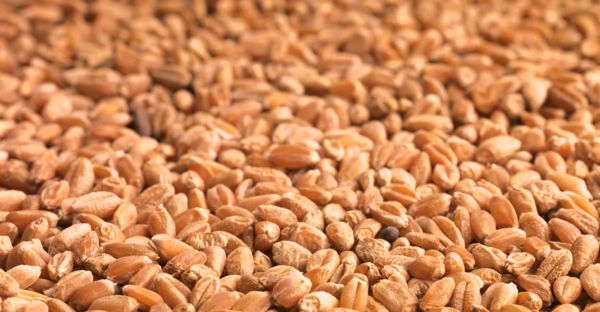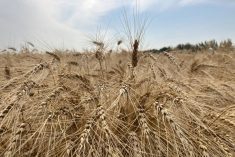“Continuous engagement” has led to a lighter regulatory load on Canadian wheat bound for Colombia, already Canada’s seventh-biggest wheat export market.
The Canadian Food Inspection Agency and trade group Cereals Canada on Tuesday announced Colombia has eased phytosanitary import rules for Canadian wheat, “effectively putting Canada on a level playing field with other exporting countries.”
Colombia’s national plant protection body, Instituto Colombiano Agropecuario, has ruled that, effective immediately, Canadian wheat imports no longer require added certifications as free of dwarf bunt or free of “seeds of other kinds.”
Read Also

U.S. livestock: Feeder cattle hit contract highs on tight supply
Chicago | Reuters – All Chicago Mercantile Exchange feeder cattle futures and most live cattle futures hit contract highs on…
A regulated disease in Canada, dwarf bunt is known to infest crops in British Columbia’s Central Kootenay and North Okanagan regional districts and part of the Columbia Shuswap district, and has been seen in wheat crops in Ontario counties bordering Georgian Bay and Lake Huron.
According to the B.C. agriculture ministry, grain, seed, straw, hay, chaff and/or screenings of wheat, barley, rye, oats or triticale can’t be transported out of the province’s regulated areas without a CFIA movement certificate. Crops can be moved to a non-regulated area if sampled, tested and found free of dwarf bunt.
The changes to Colombia’s import rules thus provide “enhanced access for Western wheat and new access for Eastern wheat,” the federal government said Tuesday.
Colombia is “a growing market in a region of growing potential for Canadian wheat,” Cereals Canada president Cam Dahl said in Tuesday’s release.
Resolving such issues with Colombia “is important to increasing exports to the entire region,” he said, crediting “co-operation between industry and multiple government departments” for the expanded access.
Colombia bought $348 million in Canadian wheat in 2014, up from $133 million in 2010 before the two countries implemented their free trade deal. CWB, formerly the Canadian Wheat Board, noted in 2009 that Colombian tariffs had been putting Canada’s wheat at a disadvantage.
The free trade deal, which came into force in August 2011, includes an agreement to “ensure that the (two countries’) sanitary and phytosanitary measures do not create unjustified barriers to trade.”
The government, in Tuesday’s release, also credited the increased sales in part to “marketing freedom,” its term for the deregulation of the CWB’s single marketing desk for Prairie wheat and barley. — AGCanada.com Network

















